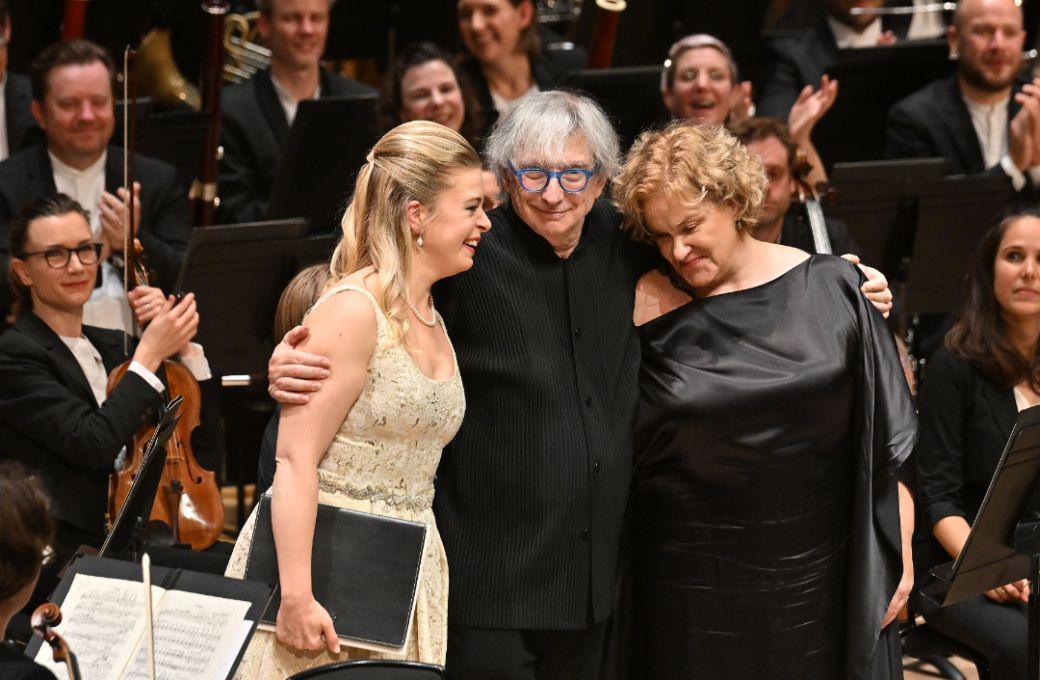“Cathartic. Powerful. Uplifting.” The London Symphony Orchestra’s marketing department promised big ahead of this concert, which saw the return of Conductor Laureate Michael Tilson Thomas for Mahler’s Resurrection Symphony. Cathartic may have been a push, but the evening was both powerful and uplifting; not just for the spirited music-making in one of the greatest symphonies, but for the outpouring of affection for a beloved conductor diagnosed in 2021 with glioblastoma multiforme, a particularly aggressive form of brain cancer. It was always going to be impossible to hear Mahler’s Second and not superimpose the conductor’s personal circumstances onto it.
Gustav Mahler has been a constant companion to MTT during his long career, a journey very much in the footsteps of his mentor and friend, Leonard Bernstein. It has included a distinguished cycle with the San Francisco Symphony during his tenure as Music Director. In his 80th birthday year, he opened the New York Philharmonic’s season last month with the Fifth Symphony. In May he conducted the LSO in the Third, a sad, poignant occasion given Tilson Thomas’ disorientation during the performance.
Despite its weighty subject matter, this Resurrection Symphony was a much happier affair. Saluting the audience with his baton, Tilson Thomas even cracked a joke to the strings before launching proceedings with a perfectly gradated diminuendo on the opening tremolando before the gruff arrival of the cellos and double basses. Towards the end of the second movement Ländler, there was even a burst of laughter towards the first violins. A chair was positioned on the podium, but MTT stood for the entire performance.
Although a Bernstein protégé, Tilson Thomas’ Mahler has always been very different, eschewing the wilder histrionics for something more sober, more humane. His beat here was small, but clear – occasionally vigorous – entirely without excess, a fluttering left hand to fine-tune the sound. Tempi were fluid – 84 minutes for the entire symphony. He drew glowing playing from the LSO strings, portamento sighs towards the end of the first movement, teasing rubatos in the Ländler. The brass had some moments of uncertain intonation, but the woodwinds shone, particularly Juliana Koch (oboe) in response to Alice Coote’s hushed delivery of Urlicht, the mezzo’s dynamic control superb.

Coote was joined by soprano Siobhan Stagg and the London Symphony Chorus for the eloquent Auferstehen finale, MTT mouthing the text. The soaring apotheosis may have been capped by the usual bells, crashing tam-tam and cymbals, but this wasn’t a bombastic performance to inspire fear and awe; it was a performance wreathed in the autumnal glow of a man who’s at peace with the world and is ready to face the next chapter on life’s journey.


